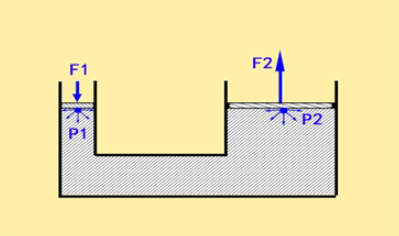First, the definition of hydraulic system
The hydraulic system is mainly divided into the transmission system and the control system. A complete hydraulic system requires five parts, including power components, actuators, control components, auxiliary components and hydraulic oil. The hydraulic system we often say is mainly used to transmit power and movement. Transport hydraulic oil, etc.

2. Working principle of hydraulic system
The hydraulic system uses Pascal's law in hydrostatics, uses oil or other liquids, and transmits pressure in the liquid, so as to achieve small pressure control of large pressure, which is somewhat similar to the principle of leverage.
The compressibility of liquids is generally very small, so in hydrostatics, liquids are considered incompressible; in incompressible static liquids, the effect of external force at any point will be instantly transmitted to all points of the fluid. It's Pascal's Law.
From the perspective of Pascal pricing, the pressure on any horizontal plane of the two connected water tanks above is equal. Then the position of the two pistons is also the same horizontal line. Then the ratio of the pressure on the two pistons is equal to the ratio of the piston area, and has nothing to do with the size of the pressure; using this principle, we can use a smaller force to generate a larger force, and the price paid is smaller The force displacement is larger, similar to the lever principle.
3. Characteristics of hydraulic system
The analysis of the characteristics of the hydraulic system can be analyzed from two aspects, energy transmission and transmission characteristics. From the perspective of energy transfer: hydraulic technology is roughly in the middle of mechanical energy transfer and electrical energy transfer.
From the perspective of transmission characteristics: mechanical transmission and hydraulic transmission can be said to have fixed characteristics. On the contrary, hydraulic transmission is the same as electric transmission, and has the characteristics of continuously variable transmission. In addition to constant power, it is also easy to achieve constant power. characteristics such as speed and constant torque.